Indigenous Governance Database
COVID-19
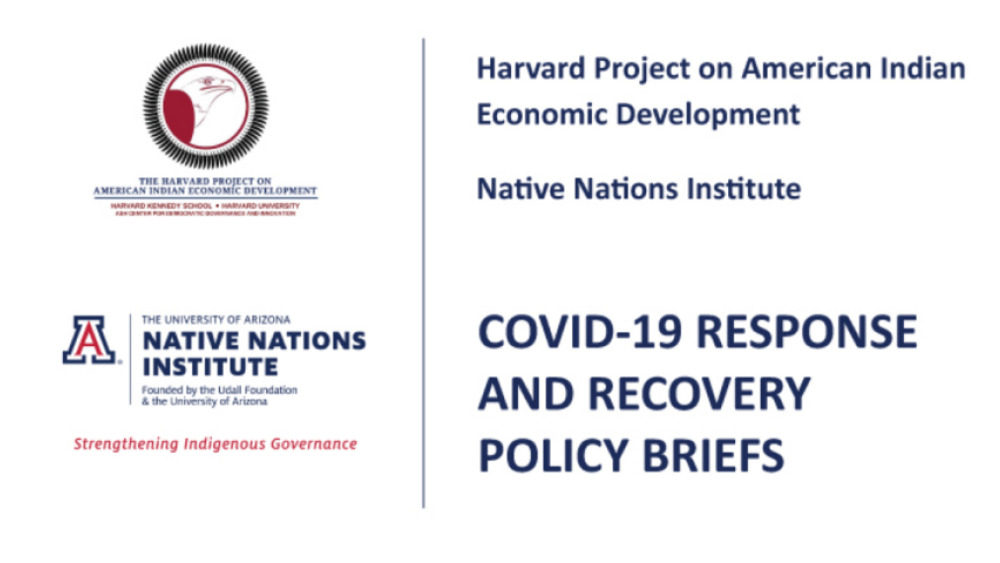
Policy Brief: Proposal for a Fair and Feasible Formula for the Allocation of CARES Act COVID‐19 Relief Funds to American Indian and Alaska Native Tribal Governments
Title V of the CARES Act requires that the Act’s funds earmarked for tribal governments be released immediately and that they be used for actions taken to respond to the COVID‐19 pandemic. These may include costs incurred by tribal governments to respond directly to the crisis, such as medical or…

On the Front Lines: Tribal Nations Take on COVID-19
Like governments around the world, America’s 574 federally recognized tribal nations are racing to protect their citizens from the coronavirus. Impacting tribes at a rate four times higher than for the US population, the pandemic is testing the limits of tribal public health infrastructures.…
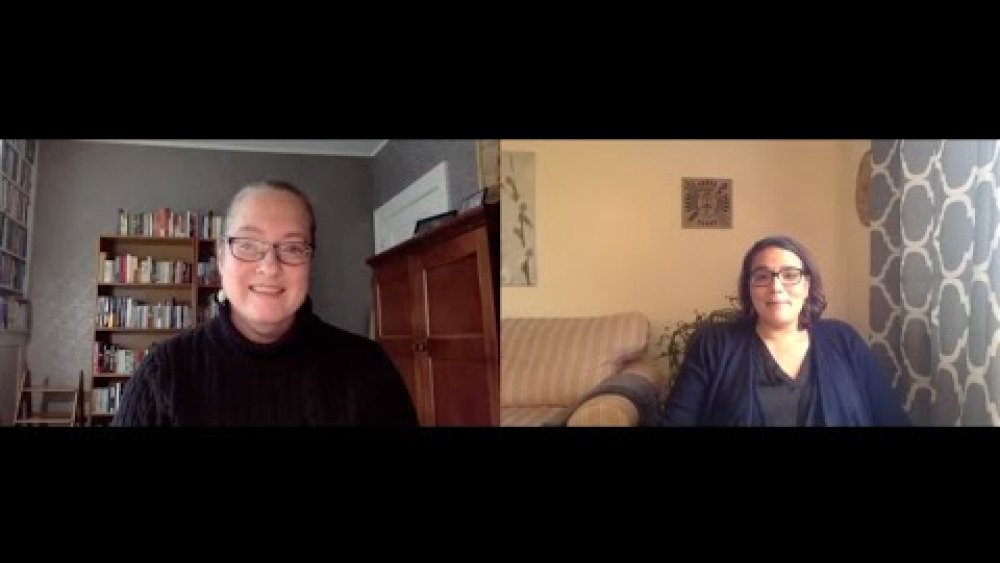
Miriam Jorgensen on New Policy Brief Dissecting Round 1 Allocations of CARES Act Tribal Funding
Miriam Jorgensen, Research Director with the Harvard Project and with Native Nations Institute at the University of Arizona, discusses the release of a new Harvard Project and Native Nations Institute policy brief dissecting the US Treasury Department's round 1 allocations of CARES Act funding for…
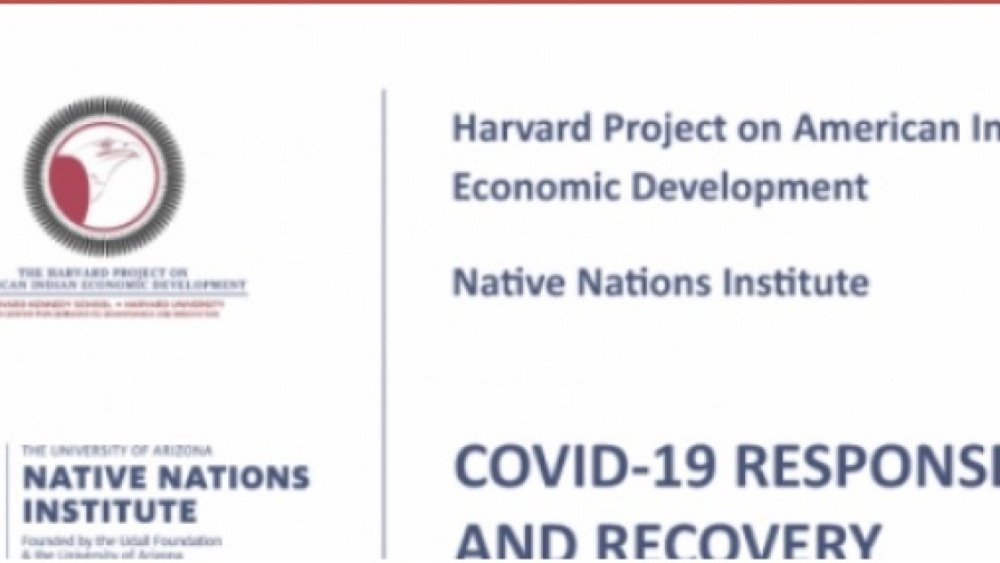
Policy Brief: The Need for a Significant Allocation of COVID‐19 Response Funds to American Indian Nations
This policy brief addresses the impact of the current COVID‐19 crisis on American Indian tribal economies, tribes’ responses to the crisis, and the implications of these impacts and actions for the US government’s allocation of crisis‐response funds to federally recognized tribes. We conclude that…
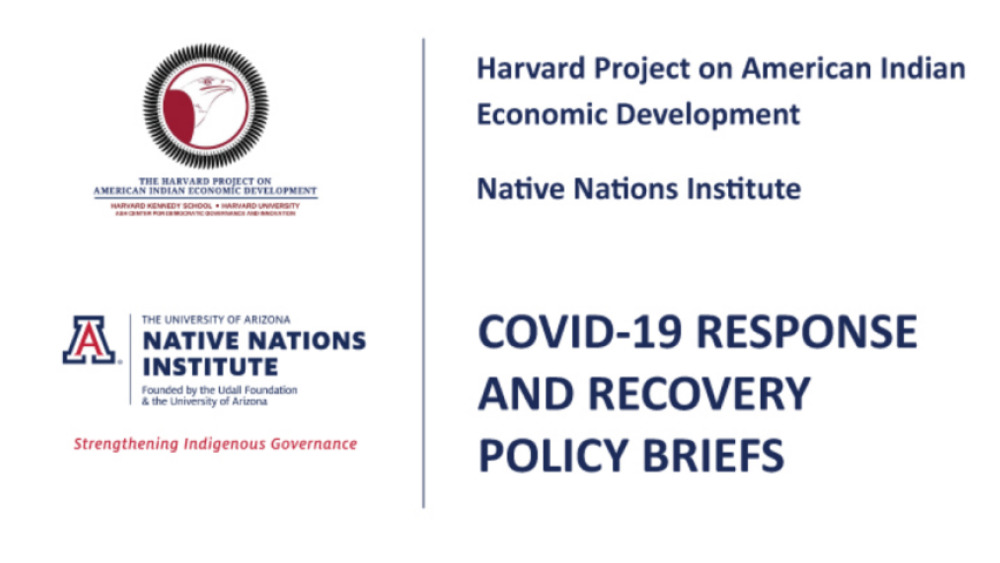
Policy Brief: Dissecting the US Treasury Department’s Round 1 Allocations of CARES Act COVID‐19 Relief Funding for Tribal Governments
In a joint statement, Treasury Secretary Mnuchin and Interior Secretary Bernhardt detailed the amount of CARES Act Title V funds that would be released for federally recognized American Indian tribes starting on May 5, 2010. They noted that the US Treasury Department would “distribute 60 percent of…
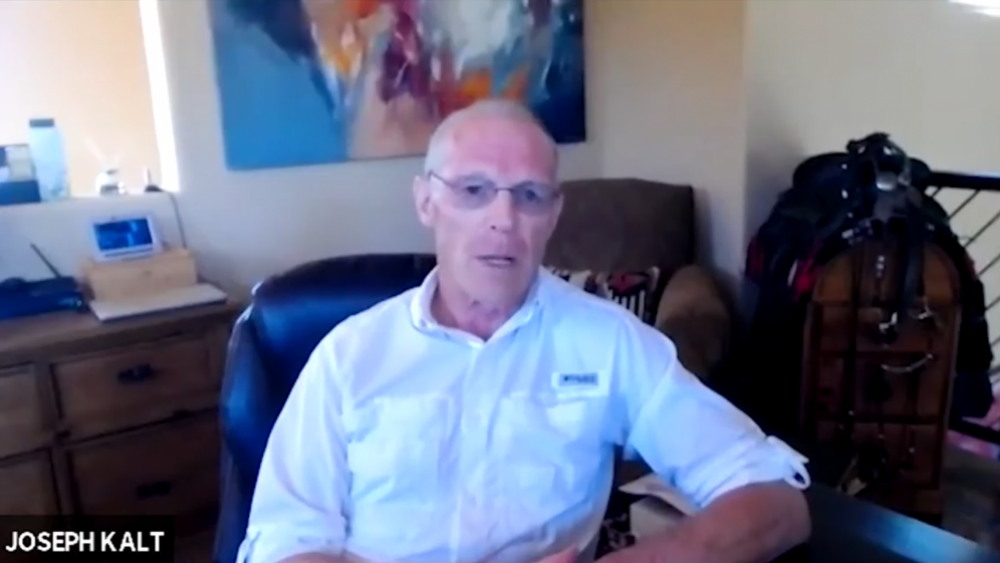
The Impact of the Pandemic on Native American Communities: Interview with Joseph Kalt
As COVID-19 tears across Indian Country, tribal governments are racing to meet not only the public health challenges caused by the pandemic, but are also grappling with the economic devastation left in its wake. To learn more about the economic crisis unfolding across Indian Country, the Ash…

Indigenized Communication During COVID-19
During times of crisis, the messages we send to our stakeholders matter more than ever. Tribal governments and Native organizations are on the frontlines of the COVID-19 pandemic and are making important decisions to protect the health and safety of their people. As Indigenous people, we…
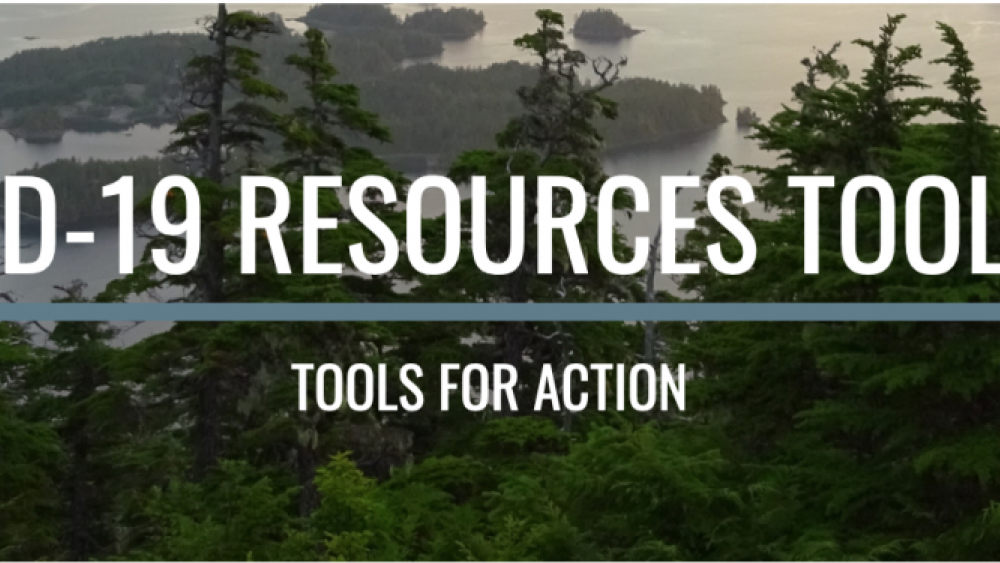
Harvard Project: COVID-19 Resources for Indian Country Toolbox
As the country responds to the coronavirus (COVID-19) pandemic, the task before tribal nations is complicated by many unknowns. The Harvard Project recognizes the challenges you're up against and we want to help. We are not experts in the health consequences of the pandemic, but we are monitoring…
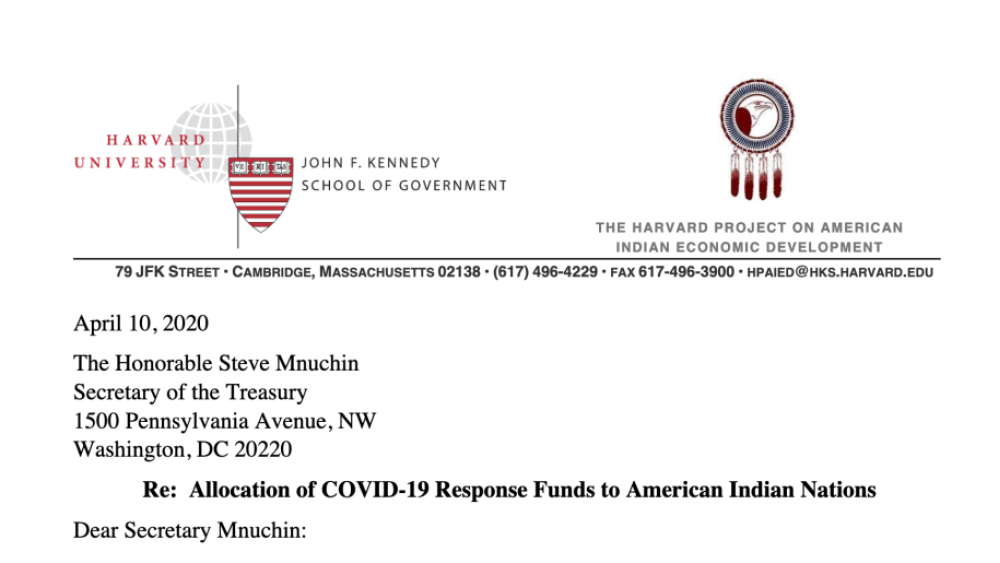
HPAIED Letter to the Treasury: Allocation of COVID-19 Response Funds to American Indian Nations
Dear Secretary Mnuchin, We write to respectfully comment on the impact of the current COVID-19 crisis on American Indian tribal economies, tribes’ responses to the crisis, and on implications for the allocation of federal COVID-19 response funds to federally recognized tribes under the CARES Act…
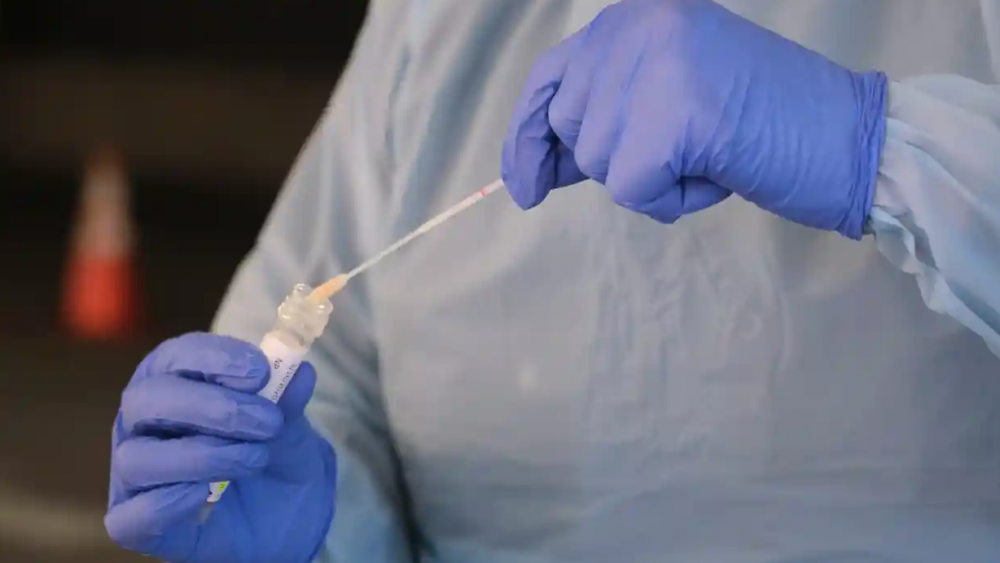
Native American tribe takes trailblazing steps to fight Covid-19 outbreak
The Lummi nation, a sovereign Native American tribe in the Pacific north-west, will soon open a pioneering field hospital to treat coronavirus patients, as part of a wave of strong public health measures which have gone further than many governments. Tribal leaders have been preparing for Covid-19…
Pagination
- First page
- …
- 1
- 2
- …
